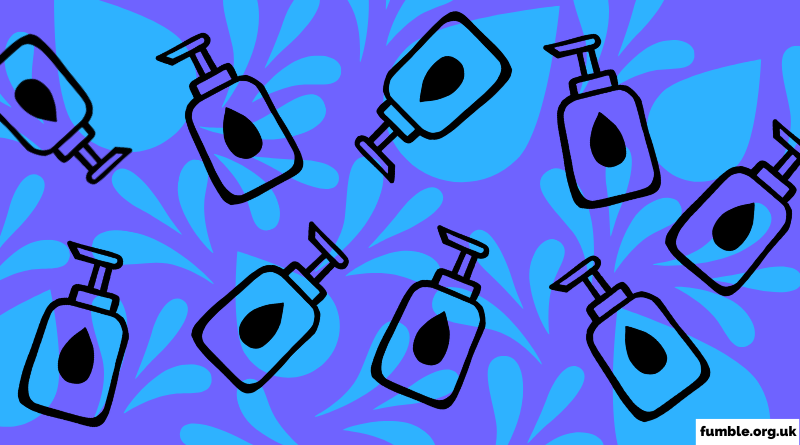Whenever you decide to have sex for the first time, the most important thing is that you want to
It’s very common to have questions when you’re thinking about having sex for the first time. It’s also normal to feel a bit nervous – this happens whenever we do something new. Just make sure those nerves are about excitement and anticipation, rather than fear and worry. There’s no wrong or right way to have sex for the first time – it’s more about how to make sure it’s as comfortable and fun as possible.
But what do we even mean by ‘sex’?
This is a really important question. Historically sex has been defined in the one, very limited way: penetrative penis-in-vagina (PIV) sex. But there are lots of different ways to have sex, including vaginal, anal and oral.
The assumption that sex is PIV is also linked to the idea of being ‘a virgin’ and ‘losing your virginity’. Being ‘a virgin’ means someone hasn’t had sex, and that’s generally assumed to be PIV sex. The phrase is problematic for many reasons – one of them being the (very cisnormative) gendered stigma or pressure. For men and boys, ‘losing your virginity’ can be seen as ‘being a man’ and it’s celebrated, so men and boys may feel pressured to have sex before they are ready. It’s often the opposite for women and girls, where there is pressure to ‘protect or preserve their virginity’ because of stigma around women/girls having sex outside of marriage or a long term relationship. Instead of being celebrated, women and girls can be shamed for having sex.
“Virginity is a complete invention” says sex educator Hannah Witton, and it’s an invention that’s created very real expectations and pressures many of us feel.
What age can I have sex?
The legal age for sexual consent in the UK is 16 years old. This means that the law says you’re not old enough to consent to sex until you’re 16, and that’s in England, Wales, Scotland and Northern Ireland. That’s for people of any gender identity or sexuality, and it also applies to all types of sex – not just PIV or vaginal sex. It’s 16 because most people don’t feel ready to have sex when they’re younger. But this doesn’t mean that everyone is having sex as soon as they turn 16 – in fact, most people wait until they’re older.
Consent is the most important part of having sex. That means checking in on the other person, making sure they want to have sex and it’s feeling good, and stopping if they’re unsure or want to stop. It also means feeling able to say if you’re unsure or want to stop and that the other person is listening to you.
Having sex for the first time is about feeling ready, knowing someone who you want to have sex with, and that person equally wanting to have sex with you.
What if I’m in a relationship with that person… when should we have sex?
There is no set number of weeks, months or years that means partners should be having sex together. This is about you, your partner, and when you both feel ready.
Here are some thoughts and tips to think about:
1. Ignore the pressure
Easier said than done – there can be a lot of pressure around having sex for the first time, and it might feel like everyone around you is already having sex. But this is about you. Not your friends, boyfriend, girlfriend, or partner. We have some tips for you if you’re feeling peer pressure or pressure from a partner.
2. Think about why you want to have sex
Why now? Have you met someone you’d like to have sex with? Are you feeling the pressure? Is it something you want to ‘get out of the way’?
There are different reasons to have sex, but people commonly have it because of pleasure. Sex is meant to feel good!
Perhaps you’ve met someone you trust and want to be intimate with. They don’t necessarily need to be a partner, they could be a friend that you really trust. It’s entirely up to you who you have sex with, just make sure it feels right for you and that they also want to feel ready to have sex.
3. Keep it safe
Just because it’s your first time, doesn’t mean that you can’t get pregnant or get a sexually transmitted infection. So it’s important to protect yourself. Condoms (there are lots of places to get them for free) protect from both pregnancy and STIs, but there are lots of different types of contraception for you to think about. Withdrawal or ‘pulling out’ does not protect you from either pregnancy or STIs.
It’s also important to think about privacy, especially if you haven’t left home yet. Places like school, college or anywhere outside may initially feel better than your parents walking in on you both, but it’s illegal to have sex in public spaces and that’s also a vulnerable position for you both to be in. Make sure you have privacy.
4. Relax!
The more relaxed you are, the more fun you’ll have. And sex is all about having fun! It’s common to feel a bit anxious beforehand. That goes for doing anything for the first time, not just sex. Talking to your partner may help a lot – they’re probably feeling similarly after all!
5. Take your time
There’s no need to rush, regardless of what type sex you’re having. Take your time leading up to it. Another great way of relaxing is to spend a long time kissing and touching each other.
6. You can change your mind
You can say no or stop at any point. This is very important to remember. Just like anything, you can change your mind even if you’ve already said yes. Nobody has the right to pressure you into anything you don’t want to do. It doesn’t matter if it’s your first time or the millionth time, only have sex if you want to have it.
It can feel really difficult to say no. Even if we know we have the right to, saying an outright ‘no’ doesn’t often come naturally. So it’s important to read each other’s body language and enthusiasm. Positive body language includes: kissing back, touching back, smiling, making eye contact. If your partner is doing the opposite of these, freezing up, avoiding eye contact, looking anxious or worried, then stop immediately and check in with them.
7. Lube up
Lube is important! Regardless of the type of sex you’re having, or the genitals you and your partner have. It enhances pleasure, reduces friction, and means condoms are less likely to break or fall off. There are lots of different types of lube, so make sure to do your research before using it.

8. Don’t worry about it hurting
It is a very common worry that having sex for the first time will and should hurt, especially for people with vaginas and during PIV sex. Not true! This is a myth. Sex should not be painful, for anyone during any type of sex.
If you are experiencing pain, it could be a sign of an infection, an allergic reaction (possibly to latex if using latex condoms), vaginismus or pelvic inflammatory disease (for people with vaginas), or a tight foreskin (for people with penises). Anal sex also shouldn’t hurt (especially with lots of lube); any pain will usually be caused by little tears in the tissue of the anus.
Stop immediately if there’s any pain – don’t push through. Depending on where and what the pain is, it might be worth getting checked out at the doctors or a sexual health clinic.
Lastly, here’s a great video that shows how normal all these questions and worries are…
Other support
Read more
Last Reviewed 21 July 2022
Image Credit: Zackary Drucker via The Gender Spectrum Collection




